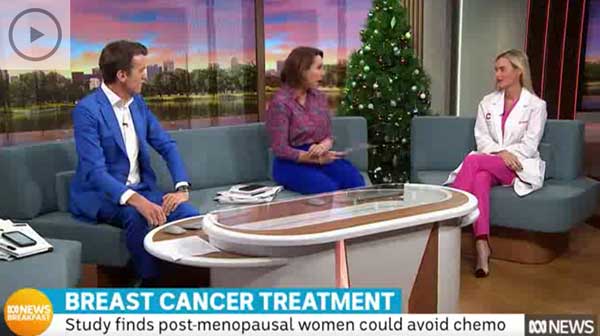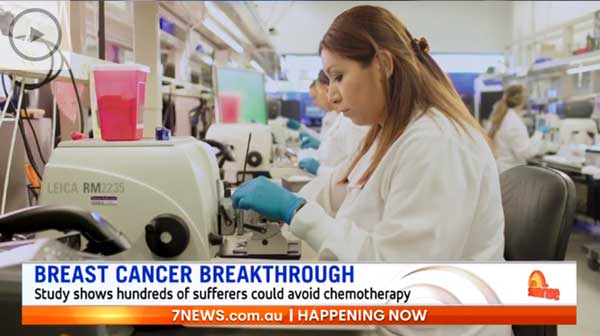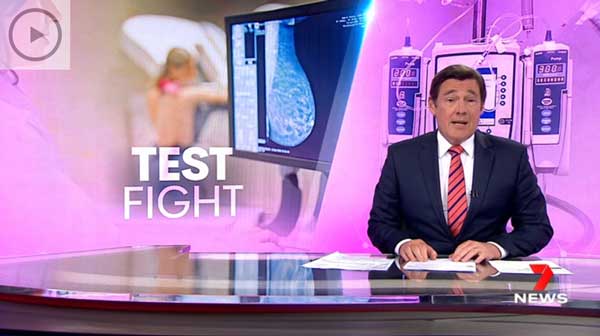SINGAPORE, July 16, 2020 /PRNewswire/ — A NEW breast cancer drug shown to significantly reduce the risk of cancer recurrence is now approved for use in Malaysia.
The drug, NERLYNX (neratinib), is an oral medication taken by women with breast cancer who have had surgery, chemotherapy and prior trastuzumab-based therapy.
It has been shown to significantly reduce the ongoing risk of recurrence in HER2+ early breast cancer patients,2 with the greatest benefit seen in women who are also hormone-receptor positive (HR+) and who commence therapy within 12 months of completing trastuzumab-based therapy. For these women, the five-year risk of recurrence is reduced by up to 42%.1
NERLYNX is approved in Malaysia for “the extended adjuvant treatment of women with early-stage hormone receptor positive HER2-overexpressed/amplified breast cancer and who completed adjuvant trastuzumab-based therapy less than one year ago.”
Nerlynx was also recently approved in Singapore by the HSA.
Independent pharmaceutical company, Specialised Therapeutics Asia (STA) is making NERLYNX available in South East Asia under exclusive license from Puma Biotechnology Inc.
STA Chief Executive Officer Mr Carlo Montagner said the latest approval in Malaysia represented a key commercial milestone and highlighted the company’s expertise in navigating regulatory pathways in these complex regions.
“Our regulatory team has worked tirelessly to secure these approvals for NERLYNX in Singapore and now Malaysia,” he commented.
“NERLYNX is the first drug in our portfolio to be approved in these regions. We are now rapidly progressing other portfolio products through relevant regulatory channels to enable patients across South East Asia access to therapies where there is an unmet medical need.
“In the case of NERLYNX, we look forward to seeing women throughout South East Asia benefit from this important therapy, that provides an opportunity to improve outcomes for early breast cancer patients.”
Professor Arlene Chan was the lead investigator and primary author in the pivotal Phase 3 trial of NERLYNX, ExteNET.2
Professor Chan said its availability in Malaysia, as well as Singapore, would be “a huge step forward” to further reduce the risk of cancer recurrence in local women diagnosed with HER2+ early breast cancer.
“Despite the clear proven benefit of standard of care chemotherapy and trastuzumab therapy, women diagnosed with early-stage HER2+ breast cancer are still at risk of disease recurrence,” Professor Chan said.
“This drug provides women with an opportunity to remain disease-free who may otherwise have had a recurrence.”
Data from the Malaysia National Cancer Registry Report (MNCRR) 2012-2016 demonstrates that the number of breast cancer cases being recorded in Malaysia is rising, with around 34 women in every 100,000 diagnosed with the disease between 2012 to 2016, compared to about 31 women between 2007 to 2011.3
Singapore health data shows that breast cancer is the most common cancer in women in the country, accounting for almost 30% of all cancer cases. It is estimated that one in 15 women will be diagnosed with breast cancer before age 75.4
About NERLYNX5
NERLYNX (neratinib) is an irreversible tyrosine kinase inhibitor that blocks signal transduction through the epidermal growth factor receptors, HER1, HER2 and HER4.
NERLYNX is the first HER2-targeted medication approved by the Australian TGA, the US Food and Drug Administration (FDA)4 and the European Medicines Agency (EMA)6 as extended adjuvant treatment for early-stage HER2-positive (HER2+) breast cancer, for patients who have previously been treated with trastuzumab following surgery (i.e., adjuvant trastuzumab-based therapy).
Extended adjuvant therapy is the next step of treatment that follows adjuvant therapy (treatment after surgery) to further reduce the risk of breast cancer returning.
NERLYNX is an oral tablet and works by binding to multiple receptors inside the cancer cell, blocking signals that tell cancer cells to grow and multiply.
About HER2+ Breast Cancer
Up to 20% of patients with breast cancer tumors over-express the HER2 protein (HER2-positive disease) and in the ExteNET study, 57% of patients were found to have tumors that were hormone-receptor positive. HER2-positive breast cancer is often more aggressive than other types of breast cancer, increasing the risk of disease progression and death. Although research has shown that trastuzumab can reduce the risk of early stage HER2-positive breast cancer recurring, up to 25%7 of patients treated with trastuzumab experience recurrence within 10 years, the majority of which are metastatic recurrences.
About the ExteNET Study2,8
The ExteNET trial was a double-blind, placebo-controlled, Phase III trial of neratinib versus placebo after adjuvant treatment with trastuzumab (Herceptin) in patients with early-stage HER2-positive breast cancer.
The ExteNET trial randomised 2,840 patients in 41 countries with early-stage HER2-positive breast cancer who had undergone surgery and adjuvant treatment with trastuzumab. After completion of adjuvant treatment with trastuzumab, patients were randomised to receive neratinib or placebo for a period of one year. Patients were then followed for recurrent disease, ductal carcinoma in situ (DCIS), or death for a period of five years after randomisation.
The primary endpoint of the trial was invasive disease free survival (iDFS). The trial demonstrated that after a median follow up of 5.2 years, treatment with neratinib resulted in a 27% reduction of risk of invasive disease recurrence or death versus placebo (hazard ratio = 0.73, p = 0.008). The 5-year iDFS rate for the neratinib arm was 90.2% and the 5-year iDFS rate for the placebo arm was 87.7%.8
An additional five-year sub-group analysis demonstrated a 42% risk reduction in women who were HR+ and who had commenced neratinib therapy within 12 months of completing treatment with trastuzumab.8
Puma is conducting a Phase 2 CONTROL study investigating various prophylactic anti-diarrhoeal regimens for the first 1-2 cycles of neratinib therapy. Emerging data suggest that prophylactic management reduces the incidence, severity and duration of neratinib-associated diarrhoea as compared with events observed in ExteNET.
About Specialised Therapeutics Asia
Headquartered in Singapore, Specialised Therapeutics Asia Pte Ltd (STA) is an international biopharmaceutical company established to new therapies and technologies to patients throughout South East Asia, as well as in Australia and New Zealand. STA and its regional affiliates collaborate with leading global pharmaceutical and diagnostic companies to bring novel, innovative and life-changing healthcare solutions to patients affected by a range of diseases. Its mission is to provide therapies where there is an unmet need. The company’s broad therapeutic portfolio currently includes novel agents in oncology, haematology, neurology, ophthalmology and supportive care.
Additional information can be found at www.stbiopharma.com
References
- Gnant, M et al. Presented at the 41st Annual San Antonia Breast Cancer Symposium (SABCS) Dec 4-8, 2018, San Antonia, TX.
- Chan A et.al. Lancet Oncol. 2016;17(3):367-77
- Malaysia National Cancer Registry Report 2012 – 2016. Available online. Last accessed July 2020.
- Singapore Cancer Registry Interim Annual Report 2010 – 2014. Available online.
- NERLYNX (neratinib) US Product Information https://www.accessdata.fda.gov/drugsatfda_docs/lab
- NERLYNX (neratinib) European Summary of Product Characteristics
- Goldhirsch A et al. Lancet.2013;382:1021-1028
- Martin M et. Al. Lancet Oncology 2017; 1-13
Cision View original content:http://www.prnewswire.com/news-releases/new-early-breast-cancer-drug-now-approved-in-malaysia-301095220.html
SOURCE Specialised Therapeutics Asia







